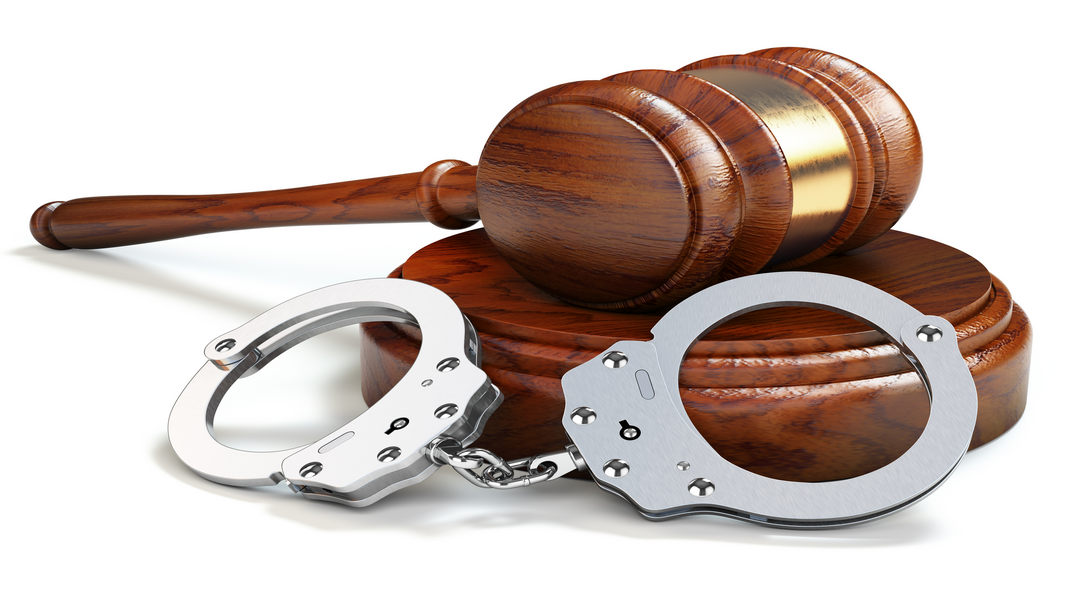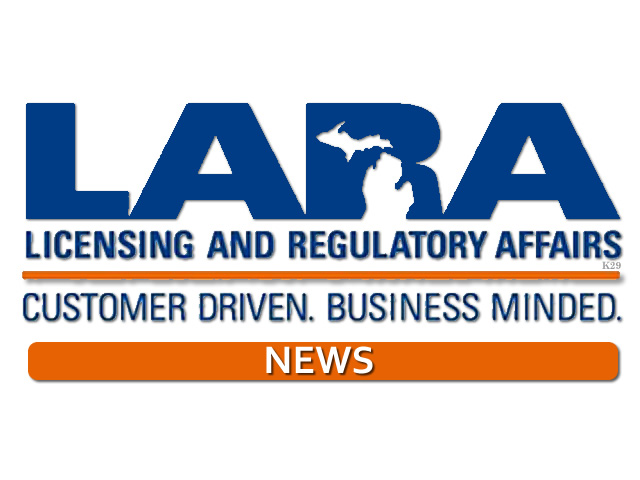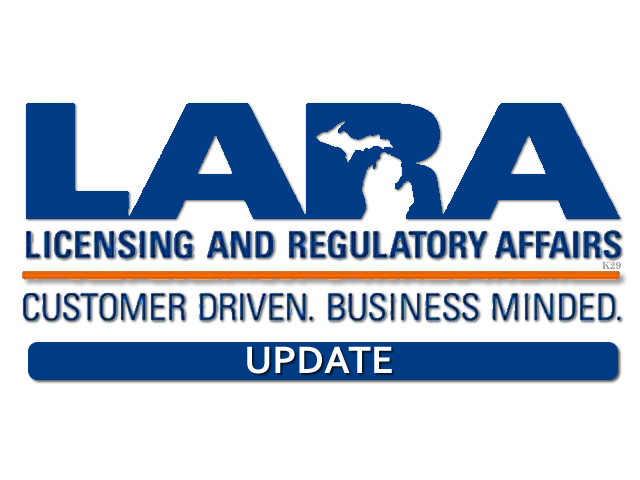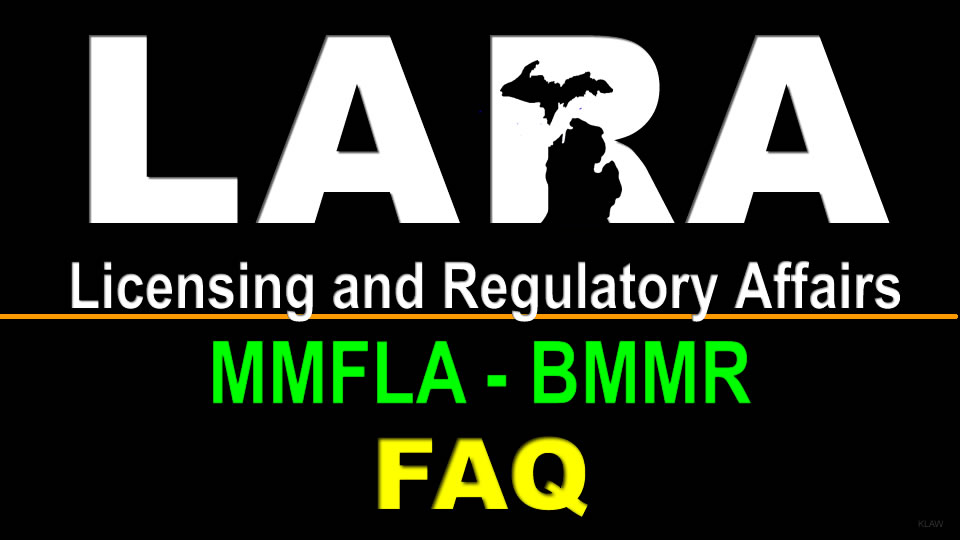
Jan 9, 2023 | Blog, Michigan Marijuana Legislature, Michigan Medical Marhuana Regulation, News
Michigan Gov. Gretchen Whitmer, calling them rushed, recently vetoed 11 bills including three medical cannabis bills, with others related to retirement and tax. The governor did however sign into law six other bills approved by the Legislature.
Two bills that were vetoed: House Bill 5871, which would have amended state law to ease access to medical cannabis products, making them easier to be transferred from one facility to another. HB 5871 would also prohibit a background check of an applicant’s spouse under certain circumstances.
House Bill 5965, on the other hand, would have updated some language and definitions in the state’s Medical Marihuana Facilities Licensing Act, such as the title for the state’s Cannabis Regulatory Agency (CRA).
Another medical cannabis-related bill was vetoed. House Bill 5839, introduced by Rep. Pat Outman (R – Six Lakes), would have prevented the CRA from denying a person a license to sell cannabis based on their spouse’s job, including if their spouse works for the state or federal government.
Michigan Advance reports that Whitmer said in her veto letter to the Legislature on Dec. 22 that the bills “were rushed through a lame duck session and need closer examination.”
The Cost of Cannabis
The price of cannabis in the Michigan adult-use market plunged about 75%, from nearly $400 an ounce to less than $100 over the past two years. That drop in price triggered some industry officials to call for a moratorium on cultivation licenses. MLive reports that 2022 was a good year for customers, on the other hand, who are paying prices much lower than normal this year.
If you or someone you know has been accused of a crime, DUI or Drugged Driving. Call Komorn Law and turn your defense into an offense.
Call Now 248-357-2550
2022 Executive Orders
- Executive Order 2022-9 Declaration of State of Energy EmergencyAugust 27, 2022
- Executive Order 2022-8 Declaration of State of EmergencyAugust 14, 2022
- Executive Order 2022-7 Michigan Committee on Juvenile JusticeAugust 02, 2022
- Executive Directive 2022-8 Supporting and Growing the Semiconductor Industry in MichiganAugust 02, 2022
- Executive Directive 2022-7 Reducing Violent CrimeJuly 26, 2022
- Executive Order 2022-6 Declaration of State of EmergencyJuly 18, 2022
- Executive Order 2022-5 Michigan Parents’ Council Michigan Department of EducationJuly 15, 2022
- Executive Order 2022-4 Unavailability of Interstate ExtraditionJuly 13, 2022
- Executive Order 2022-3 Declaration of State of EmergencyJune 24, 2022
- ED 2022-6 Streamlining PermittingJune 01, 2022
- ED 2022-5 – Reproductive Rights in MichiganMay 25, 2022
- Executive Order 2022-2 Declaration of State of EmergencyMay 20, 2022
- ED 2022-3March 18, 2022
- Executive Directive 2022 – 2March 02, 2022
- Executive Order No. 2022-1: Department of Licensing and Regulatory Affairs, Department of Agriculture and Rural Development, Department of Labor and Economic Opportunity Executive ReorganizationFebruary 14, 2022
- Executive Directive 2022 – 01January 04, 2022
News
Komorn Law Social Media
Recent Posts
Tag Cloud
2021
BMMR
cannabis
CBD
corruption. prosecutors
dispensary
Driving
DUI
forfeiture
gun rights
hemp
komornlaw
lara
law enforcement abuse
laws
Legalization
marijuana
Medical Marijuana
Michigan
michigan laws
michigan news
MMFLA
MRA
news
police
politics
science
usa news
us supreme court
Your Rights
DISCLAIMER
This post may contain re-posted content, opinions, comments, ads, third party posts, outdated information, posts from disgruntled persons, posts from those with agendas, private stuff and general internet BS. Therefore…Before you believe anything on the internet regarding anything – do your research on “Official Government and State Sites”, Call the Michigan State Police, Check the State Attorney General Website and Consult an Attorney – Use Your Brain. You’re on the internet.

Dec 28, 2020 | Blog, Michigan Medical Marhuana Regulation
Municipal reforms
First a brief look at the history of medical marijuana and legalization thanks to Wikipedia
Prior to statewide legalization, many cities in Michigan decriminalized cannabis or made enforcement of cannabis laws the lowest priority. Among the cities to enact such reforms were: Ann Arbor (1972), Kalamazoo (2012), Detroit (2012), Flint (2012), Grand Rapids (2012), Ypsilanti (2012), Ferndale (2013), Jackson (2013), Lansing (2013), Hazel Park (2014), Oak Park (2014), Berkley (2014), Huntington Woods (2014), Mount Pleasant (2014), Pleasant Ridge (2014), Port Huron (2014), Saginaw (2014), East Lansing (2015), Keego Harbor (2015), and Portage (2015).[2]
Ann Arbor
Main article: Cannabis laws in Ann Arbor, Michigan
Since the 1970s the college town of Ann Arbor has enacted some of the most lenient laws on cannabis possession in the United States. These include a 1972 city council ordinance, a 1974 voter referendum making possession of small amounts a civil infraction subject to a small fine, and a 2004 referendum on the medical use of cannabis. Since state law took precedence over municipal law, the far-stricter state cannabis laws were still enforced on University of Michigan property.
Medical legalization (2008)
Main article: Michigan Compassionate Care Initiative
In November 2008, the Michigan Compassionate Care Initiative (appearing on the ballot as Proposal 1) was approved by Michigan voters.[3] The measure allowed patients with a physician’s recommendation to possess up to 2.5 ounces of cannabis for treatment of certain qualifying medical conditions.[4] Although it did not explicitly allow dispensaries to operate,[5] it did allow patients or their caregivers to cultivate up to 12 cannabis plants.[4] The measure faced opposition from law enforcement officials and drug czar John P. Walters,[6] but it was ultimately approved by a 63–37 margin, making Michigan the 13th state to legalize medical use and the first Midwestern state to do so.[7]
In February 2013, the Supreme Court of Michigan ruled that the 2008 initiative did not allow for the operation of medical cannabis dispensaries in the state. An estimated 75 to 100 dispensaries were operating under this legal gray area at the time.[8]
In September 2016, Gov. Rick Snyder signed a package of bills that among other reforms: (a) allowed the operation and regulation of medical cannabis dispensaries; (b) set a taxation rate of 3% on medical cannabis; and (c) allowed the use of non-smokable forms such as topicals and edibles.[9][10][11]
Recreational legalization (2018)
Main article: Michigan Regulation and Taxation of Marihuana Act
In November 2017, legalization proponents submitted 365,000 signatures to put a cannabis legalization measure on the 2018 ballot.[12] In April 2018, it was certified that supporters had turned in the requisite number of valid signatures.[13] In June 2018, state lawmakers declined the option to pass the measure themselves, sending it to the November ballot.[14] On November 6, 2018, Michigan voters approved Proposal 1 by a 56–44 margin, making Michigan the 10th state (and first in the Midwest) to legalize cannabis for recreational use.[15]
The Michigan Regulation and Taxation of Marihuana Act allows persons age 21 and over to possess up to 2.5 ounces of cannabis in public, up to 10 ounces at home, and cultivate up to 12 plants at home.[16] It also sets up a system for the state-licensed cultivation and distribution of cannabis, with sales subject to a 10% excise tax (in addition to the state’s 6% sales tax).[15] The law went into effect on December 6, 2018,[17] and the first dispensaries opened to the public on December 1, 2019.[18]
Source for above information: https://en.wikipedia.org/wiki/Cannabis_in_Michigan
Court Cases During The Early Medical Marijuana Years That Helped Shape The Current Laws in Michigan
or…. Victims of The System.
Michigan COA and MSC Cases:
Important Court Cases in Marijuana
People-v-Adams-282638..pdf
People-v-Agro-305725.pdf
People-v-Agro-320927.pdf
People-v-Allen-324710.pdf
People-v-Alzehery-335632.pdf
People-v-Amsdill-334572.OPN_.pdf
People-v-Amsdill-Sochacki-317875.pdf
People-v-Anderson-300641-concurring.pdf
People-v-Anderson-300641-on-Remand.pdf
People-v-Anderson-300641.pdf
People-v-Auernhammer-322800.pdf
People-v-Barash-324545.pdf
People-v-Bendele-334677.pdf
People-v-Blesch-314646.pdf
People-v-Blesch-concur-in-part-dissent-in-part-314646.pdf
People-v-Bosca-317633.pdf
People-v-Brown-303371.pdf
People-v-Bylsma-302762.pdf
People-v-Bylsma-Overholt-317904.pdf
People-v-Bylsma-S144120.pdf
People-v-Campbell-291345.pdf
People-v-Carlton-321630.pdf
People-v-Carlton-concurrence-dissent-321630.pdf
People-v-Carroll-297541.pdf
People-v-Carruthers-309987.pdf
People-v-Carruthers-319991.pdf
People-v-Christner-309076.pdf
People-v-Cook-MSC-155570-order-granting-leave-in-COA-336467.pdf
People-v-Danto-et-al-302986.pdf
People-v-Dehko-305041.pdf
People-v-Donaghy-322677.pdf
People-v-Feezel-S138031.pdf
People-v-Ferguson-326709-326725.pdf
People-v-France-309822.pdf
People-v-Frederick-323642.pdf
People-v-Frederick-VanDoorne-MSC-153115.pdf
People-v-Gebhardt-306516.pdf
People-v-Gillette-334099.pdf
People-v-Gonzalez-327859.pdf
People-v-Goodwin-320591.pdf
People-v-Grant-316487.pdf
People-v-Green-308133.pdf
People-v-Hannan-329579.pdf
People-v-Hartwick-312308.pdf
People-v-Hartwick-332391.pdf
People-v-Hartwick-and-Tuttle-S148444.pdf
People-v-Heminger-316959.pdf
People-v-Hensley-331089.pdf
People-v-Hinzman-308909.pdf
People-v-Hinzman-309351.pdf
People-v-Howard-312267.pdf
People-v-Jackson-331074.pdf
People-v-Jaszczolt-S155377.pdf
People-v-Johnson-326504.pdf
People-v-Johnson-et-al-308104L.pdf
People-v-Jones-312065.pdf
People-v-Keller-304022.pdf
People-v-Kiel-301427.pdf
People-v-King-294682.pdf
People-v-Kocevar-329150.pdf
People-v-Kocevar-dissent-329150.pdf
People-v-Kolanek-295125.pdf
People-v-Kolanek-S142695.pdf
People-v-Koon-301443.pdf
People-v-Koon-S145259.pdf
People-v-Latz-328274.pdf
People-v-Lee-307318.pdf
People-v-Leonard-313345.pdf
People-v-Lewis-3173177.pdf
People-v-Lewis-330107.pdf
People-v-Lois-Butler-Jackson-315591.pdf
People-v-Lois-Butler-Jackson-concurring-315591.pdf
People-v-Lois-Butler-Jackson-partial-dissent-and-concurring-.pdf
People-v-Macleod-326950.pdf
People-v-Magyari-327798..pdf
People-v-Malik-293397.pdf
People-v-Manuel-331408.pdf
People-v-Mazur-317447.pdf
People-v-Mazur-S149290.pdf
People-v-McCleese-307079.pdf
People-v-Mendoza-328109.pdf
People-v-Miller-322555.pdf
People-v-Misko-323885.pdf
People-v-Moran-336847.pdf
People-v-Nicholson-306496.pdf
People-v-OConnor-312843.pdf
People-v-Olger-309559.pdf
People-v-Orlando-303644.pdf
People-v-Ousley-330502.pdf
People-v-Peters-288219.pdf
People-v-Placencia-321585.pdf
People-v-Pointer-302795-October-11-2012.pdf
People-v-Pointer-on-remand-302795-October-1-2013.pdf
People-v-Randall-318740.pdf
People-v-Redden-295809-concurring-opinion.pdf
People-v-Redden-295809.pdf
People-v-Reed-296686.pdf
People-v-Reed-Shaw-333118-333119.pdf
People-v-Rivera-Stackpoole-307315.pdf
People-v-Rocafort-321804-on-remand.pdf
People-v-Rocafort-321804.pdf
People-v-Rocafort-dissent-321804.pdf
People-v-Rocafort-dissent-on-remand-321804.pdf
People-v-Rocafort-S153254.pdf
People-v-Rose-326206.pdf
People-v-Rose-331021.pdf
People-v-Salerno-307087.pdf
People-v-Selman-333484.pdf
People-v-Sherwood-321558.pdf
People-v-Slack-334583.pdf
People-v-Sommer-319184.pdf
People-v-Spencer-304422.pdf
People-v-Spencer-concurring-opinion-304422.pdf
People-v-Tackman-et.-al.-330654.pdf
People-v-Trzos-334666.pdf
People-v-Tuttle-312364.pdf
People-v-Vanderbutts-299347.pdf
People-v-VanSickle-309555.pdf
People-v-Ventura-327289.pdf
People-v-Walburg-295497.pdf
People-v-Watkins-301771.pdf
People-v-Watkins-302558.pdf
People-v-Witt-332940.pdf
People-v-Zaid-320197.pdf
Roe-v-Bloomfield-Township-308906.pdf
State-of-Michigan-v-McQueen-S143824.pdf
State-of-Michigan-v-McQueen-Taylor-and-Compassionate-Apothe.pdf
Ter-Beek-v-Wyoming-306240.pdf
Ter-Beek-v-Wyoming-S145816.pdf
US-v-McIntosh-et.-al.-15-10117.pdf
US-v-Neece-FBEH005C-EDMI.pdf
York-v-Miller-335344.pdf
Public Acts modifying the MMMA:
2012-PA-0460.pdf
2012-PA-0512.pdf
2012-PA-0514.pdf
2015-HNB-4629.pdf
2015-SCB-0072.pdf
2015-SFA-0141-E.pdf
2015-SNB-0072.pdf
2015-SNB-0141.pdf
2016-PA-0281.pdf
2016-PA-0282.pdf
2016-PA-0283.pdf
2016-PA-350.pdf
Many things have changed and Marijuana legalization was voted by the people of Michigan in 2018.
For Current information go to the Marijuana Regulatory Agency (MRA) website
CRIMINAL DEFENSE
For over 27 years Komorn Law has been a trusted adviser providing results-focused legal counsel to its clients in all areas of criminal defense. From the first encounter with law enforcement to districts courts all the way to the supreme court. We are advocates of our clients’ rights in cases involving marijuana, drugged driving, DUI, criminal charges, as well as many other case types.
CANNABIS BUSINESS LICENSING AND LEGAL COUNSEL
If you are starting or have an established Cannabis Business in Michigan. Komorn Law has the legal team you will need. With a 100% success rate in licensing our firm offers legal counsel services with connections and assets in the world’s leading and most refined cannabis industry network.
Komorn Law Social Media
Recent Posts
Tag Cloud
2021
BMMR
cannabis
CBD
corruption. prosecutors
dispensary
Driving
DUI
forfeiture
gun rights
hemp
komornlaw
lara
law enforcement abuse
laws
Legalization
marijuana
Medical Marijuana
Michigan
michigan laws
michigan news
MMFLA
MRA
news
police
politics
science
usa news
us supreme court
Your Rights
DISCLAIMER
This post may contain re-posted content, opinions, comments, ads, third party posts, outdated information, posts from disgruntled persons, posts from those with agendas and general internet BS. Therefore…Before you believe anything on the internet regarding anything – do your research on Official Government and State Sites, Call the Michigan State Police, Check the State Attorney General Website and Consult an Attorney – Use Your Brain.

May 2, 2019 | Michigan Medical Marhuana Regulation, News
May 2, 2019 – As of April 30, 2019, the Marijuana Regulatory Agency (MRA) was established via Governor Whitmer’s Executive Order 2019-7. Over the next several weeks, the MRA, led by Executive Director Andrew Brisbo, will be implementing new practices to streamline the application process and ensure access to safe marijuana products.
Earlier this week, the Court of Claims issued several orders relative to the operation of unlicensed facilities and access to caregiver product. The MRA has reviewed the orders and is evaluating whether any further legal action is appropriate.
The agency will be reviewing applications for those that paid an application fee but never submitted a complete application and therefore never had it considered by the Medical Marihuana Licensing Board. This review will include applicants that never responded to notices of deficiency and/or failed to provide supplemental applications for owners, as required by the administrative rules. The MRA will swiftly provide these applicants – and others similarly situated – an approval or denial of their application.
As to caregiver product, until further notice, the MRA will not take disciplinary action against a licensee in the circumstances provided for in the Medical Marihuana Licensing Board’s March 21, 2019 resolution. The full resolution is available here.
Below is a summary of the provisions of the resolution regarding caregiver product that will remain in effect until the MRA publishes an advisory bulletin on this issue.
Licensed Provisioning Centers
- Licensees may obtain marijuana products only from a licensed grower or licensed processor.
- Licensees must obtain patient consent on a form provided by the MRA prior to selling any marijuana products obtained from a caregiver on or before April 30, 2019 that have not been tested in full compliance with the law and administrative rules.
- Licensees must enter all inventory into the statewide monitoring system immediately upon receipt.
- Licensees, before any sale or transfer, must verify – and confirm with government issued photo identification – with the statewide monitoring system that a patient or primary caregiver holds a valid registry identification card.
- Licensees must enter all sales in the statewide monitoring system and must determine sales will not exceed daily purchasing limits.
- Licensees must notify the MRA within one business day of becoming aware of any adverse reaction to a marijuana product sold or transferred.
Licensed Growers and Licensed Processors:
- Licensees may obtain marijuana products from caregivers.
- Licensees must enter all inventory into the statewide monitoring system immediately upon receipt.
- Licensees may only transfer marijuana products that have been tested in full compliance with the law and administrative rules.
- Licensees must tag or package all inventory that has been identified in the statewide monitoring system.
- Licensees must transfer marijuana products by means of a secure transporter, except where exempted under law.
- Licensees must notify the MRA within one business day of becoming aware of any adverse reaction to a marijuana product sold or transferred.

Aug 2, 2018 | Blog, LARA-MMFLA Info, Michigan Medical Marhuana Regulation
LARA-MMFLA Update-Per Rule 40, Section 2(a) of the Emergency Rules, a licensed provisioning center may sell or transfer marihuana product to a visiting qualifying patient if all of the following are met:
Update-The licensee verifies that the visiting qualifying patient has a valid unexpired medical marihuana registry card or its equivalent issued in another state, district, territory, commonwealth, or insular possession of the United States that allows the medical use of marihuana.
The licensee confirms that the visiting qualifying patient presented his or her valid driver license or government-issued identification card that bears a photographic image of the visiting qualifying patient.
All provisioning centers within the State of Michigan that are currently operating temporarily with local approval are advised that no patient identification (ID) cards are being issued by the state of Ohio’s Medical Marijuana Control Program (MMCP) at this time. LARA-BMMR has been informed that the State of Ohio Board of Pharmacy will not be issuing valid Ohio patient registry cards until September 2018. Any patient ID card presented from the state of Ohio to a provisioning center in Michigan before September 2018 is considered invalid and constitutes a violation of Rule 40 Section 2(a) of the MMFLA Emergency Rules.
Based on the available data, the following states are currently issuing medical marihuana cards
or registration certifications to patients:
• Alaska
• Arizona
• California
• Colorado
• Connecticut
• Delaware
• Florida
• Hawaii
• Illinois
• Maine
• Maryland
• Massachusetts
• Minnesota
• Montana
• Nevada
• New Hampshire
• New Jersey
• New Mexico
• New York
• Ohio#
• Oregon
• Pennsylvania
• Rhode Island
• Vermont
• Washington
• Washington DC
• West Virginia*
# Has a medical marijuana program, but will not issue patient ID cards until September 2018.
* Has a medical marijuana program, but will not issue patient ID cards until July 1, 2019.
View official LARA release HERE
LARA Site Document

Aug 1, 2018 | Blog, LARA-MMFLA Info, Michigan Medical Marhuana Regulation
Marihuana Grower License
In Michigan a Marihuana Grower is licensed to cultivate, dry, trim, or cure and package marihuana for sale to a processor or provisioning center. A Grower cannot be a registered primary caregiver.
The 3 levels of a Growers’ license is based on the amount of marihuana product grown.
- Class A – 500 plants
- Class B – 1,000 plants
- Class C – 1,500 plants
Marihuana Grower License Requirements
- Applicant, and each investor in the grower, must not have an interest in a secure transporter or safety compliance facility.
- Must employ an individual with a minimum of 2 years’ experience as a caregiver (This restriction ends after December 31, 2021)
- The licensee must not be an active caregiver and must not employ an active caregiver.
- Cultivation must occur in industrial or agricultural zoned areas, or in unzoned areas that meet local ordinance requirements.
How is your plant count determined as it affects your growing limits as a Class A, B, C Grower Licenses?
The MMFLA defines a plant as any living organism that produces its own food through photosynthesis and has observable root formation or is in growth material.
A licensee’s plant limit is based on the type of license issued. Any plant that meets this definition is counted toward the licensee’s plant count.
Can I hold a CPL license and a medical marihuana facility license?
There are no restrictions in the MMFLA that prevent a CPL holder from obtaining a medical marihuana facility license.

Jul 24, 2018 | Blog, LARA-MMFLA Info, Michigan Medical Marhuana Regulation
The hazards that may be present in the marihuana industry highlight the need for careful attention to safety and health at all facets of the businesses.
Not all items listed in this guide may be present at a medical marijuana facility. Conversely, there may be additional ones not listed on this guide that may be present. This guide is intended to provide a starting point for the identification and control of occupational safety and health hazards in this evolving industry.
Identifying and controlling workplace risk begins with an effective Safety and Health Management System.
Some Potential Safety and Health Hazards
- Carbon dioxide used to enrich growing environment.
- Chemicals used as plant nutrients.
- Chemicals used to clean and sanitize equipment.
- Chemicals used to extract essential oils from plant materials.
- Dusts from growing or processing environments.
- Noise from growing and processing equipment, i.e. generators or processing machinery.
- Air contaminants (e.g., carbon dioxide)
- Respiratory protection
- Fire suppression systems
- Labeling
- Employee training
Read the entire release here
Komorn Law has represented numerous clients through the legal chaos of starting up a business in the Michigan Medical Marihuana Industry.
Contact Us For More Information.
800-656-3557





























